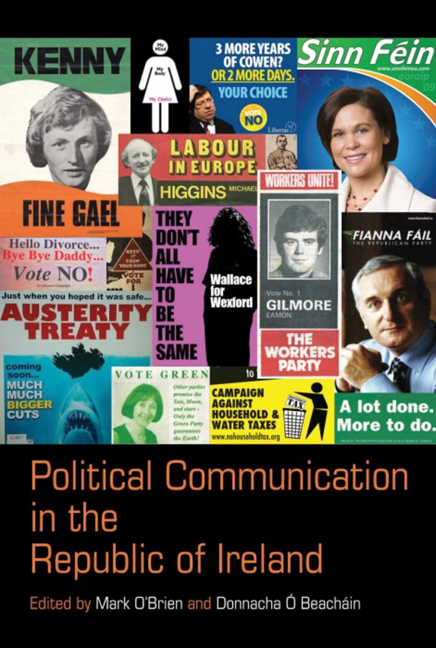Book contents
- Frontmatter
- Contents
- List of Illustrations
- Glossary
- Notes on Contributors
- Acknowledgements
- Introduction
- Part One Political Communication and Politicians
- 1 Political communication: an overview
- 2 Elections and political communication
- 3 A pragmatic partnership: politicians and local media
- 4 Political communication and the ‘loony left’
- Part Two Political Communication and Journalism
- Part Three Political Communication and the Public
- Conclusion
- Index
2 - Elections and political communication
from Part One - Political Communication and Politicians
- Frontmatter
- Contents
- List of Illustrations
- Glossary
- Notes on Contributors
- Acknowledgements
- Introduction
- Part One Political Communication and Politicians
- 1 Political communication: an overview
- 2 Elections and political communication
- 3 A pragmatic partnership: politicians and local media
- 4 Political communication and the ‘loony left’
- Part Two Political Communication and Journalism
- Part Three Political Communication and the Public
- Conclusion
- Index
Summary
Election campaigns are sporadic events during which the apathy that the non-participatory political system engenders has to be momentarily surmounted to inject renewed legitimacy into organised political parties. How the citizenry are to be motivated to mobilise from their habitual passivity depends on the quality and quantity of political communication with the electorate. In short it is influenced, if not determined, by the character of the election campaign. This chapter provides a brief introduction to how those competing for votes have communicated with the Irish electorate since the foundation of the state.
Campaign slogans, techniques and candidates
As the revolutionary generation that had monopolised political power for the first four decades of independence exited the political stage during the 1960s, prospective candidates for election had to find new ways of getting on the ticket. For those not part of a political dynasty forged during the formative years of the state, sport proved another way of coming to the attention of the electorate, and the party leaderships. The 1965 general election returned 17 former Gaelic games stars (Whyte, 1966, 31) but a focus on GAA luminaries provides only a partial picture of the influence of the organisation. Brian Farrell (1971, 321–22) has noted that the 1969 election returned, in addition to 15 GAA stars, four GAA county officials and another 25 deputies who had been or continued to be active within the GAA as players or officials. The most significant figure of this new generation was Jack Lynch, who governed Ireland for most of the period spanning the mid-1960s to the late 1970s, and whose complete lack of a political pedigree was compensated for by having won six All-Ireland hurling and football medals.
The passing of the revolutionary generation also led to increasing localism. Almost a third of those elected to the Dáil on the back of their revolutionary exploits represented constituencies other than their home districts (Cohan, 1972, 61) and, initially at least, the most prominent represented more than one constituency with some elected to both the Dublin and Belfast legislatures. This feature of revolutionary politics freed representatives from dependence on a local bailiwick and allowed them to view issues from a national rather than a parochial perspective.
- Type
- Chapter
- Information
- Political Communication in the Republic of Ireland , pp. 25 - 44Publisher: Liverpool University PressPrint publication year: 2014



